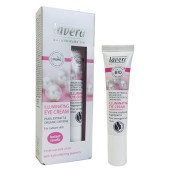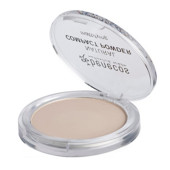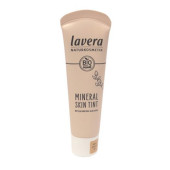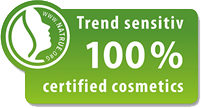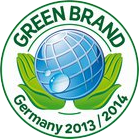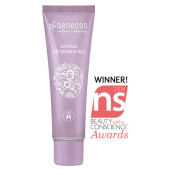You have seen cosmetics labels reading "no animal testing" or "cruelty free". This is a good thing, of course, as none of us wants our personal care or beauty products to put an animals well being at risk. Lavera does not perform any animal testing – Lavera products are tested on human volunteers under dermatogist supervision.
It is important to keep in mind, however, that cruelty free is not synonymous with organic, natural, or non-toxic. While it is true that most manufacturers of natural beauty products are against animal testing, there are no legal definitions for "cruelty free". Furthermore, a cosmetics manufacturer can label their products as cruelty free, but still purchase ingredients from suppliers who conduct animal testing.
There are a few societies that certify products are cruelty free. The BDIH is the organization that certifies Lavera products to be both Natural and Cruelty free. Its requirements for certification include the following:
- No animal testing may be performed or commissioned when end products are manufactured, developed or tested.
- Raw materials that were not available on the market before 01.01.1998 may only be used if they have not been tested on animals. This does not include animal testing performed by third parties who neither were ordered/prompted by the ordering party to do so nor are associated to the ordering party by company law or by contract.
- It is prohibited to use raw materials obtained from dead vertebrates (e.g. spermaceti, terrapin oil, mink oil, marmot fat, animal fats, animal collagen or living cells).

The European Union established a ban on animal testing implemented in 2004 on finished cosmetics products. In March of 2009 an amendment to the ban outlawed animal testing in seven toxicity tests on any ingredient used in a cosmetic product. These tests are for skin irritancy, sensitivity to light, corrosivity, skin absorption, genetic toxicity, eye irritancy, and acute toxicity. The amendment also bans the import of cosmetics containing ingredients that have been animal tested in this way. Another ban, set for March of 2013, would outlaw eight more tests – these to determine long-term effects, like cancer or birth defects. Currently, the US has no such restrictions on animal testing of cosmetic ingredients or finished cosmetic products.
So, what exactly is animal testing? In the cosmetics world, ingredients are tested on animals to determine whether they are safe for use by human beings. But let's look at the big picture here.
Animal research is a booming business, killing upward of 100 million animals each year. Organ transplants and certain vaccines are just a couple of the hugely beneficial findings garnered from animal research. But then there are the rats, rabbits, monkeys, and dogs who are harmed and killed to test ingredients for lipstick, body shimmer and the latest anti-aging serum. Is this really worth it? Surely does not seem so.
These tests aim to measure an ingredient's toxicity level, and irritation or damage to skin and eyes. During the Draize test, caustic substances are placed in the eyes of rabbits to determine the damage to their eye tissue. There is also the lethal dosage (LD) test, which is used to figure out how much of a certain substance it takes to kill a predetermined ratio of animals.
Besides the ethical issue of testing on animals, another issue is its effectiveness. The effects of an ingredient on an animal can vary greatly from that of a human. And because our lifespan is so much longer than animals, the negative effects of an ingredient can build over time in our bodies and show up as having no negative effects when tested on animals.
 There are alternatives to animal testing that can achieve the same, if not better measurement of results. Testing on individual cells or on proteins in a lab environment (in vitro) or on human volunteers (in vivo) are much more ethical practices, and many cosmetics companies are beginning to use them.
There are alternatives to animal testing that can achieve the same, if not better measurement of results. Testing on individual cells or on proteins in a lab environment (in vitro) or on human volunteers (in vivo) are much more ethical practices, and many cosmetics companies are beginning to use them.
All Lavera products carry BDIH certification, adhering to stringent guidelines for ingredient usage and manufacturing processes, including the prohibition of animal testing. Even more, over 100 Lavera products are certified vegan by the Vegan Society. With Lavera products, you can look AND feel great knowing you are not harming your health or that of other animals!



